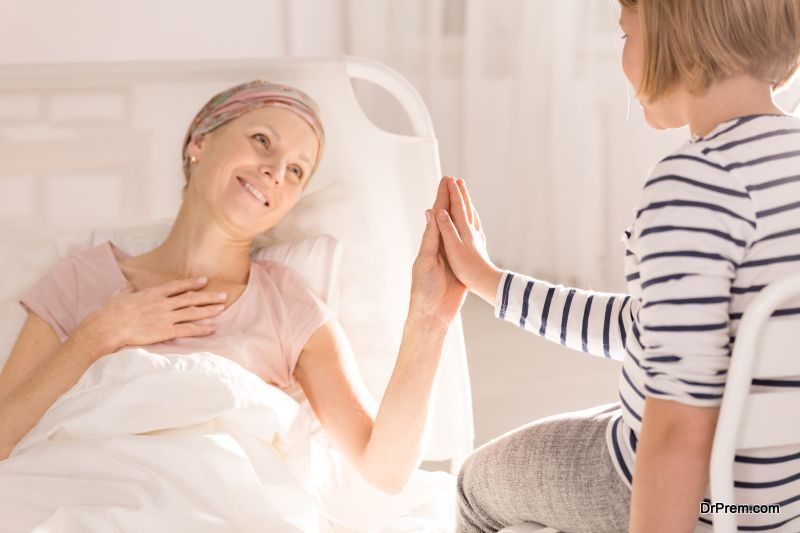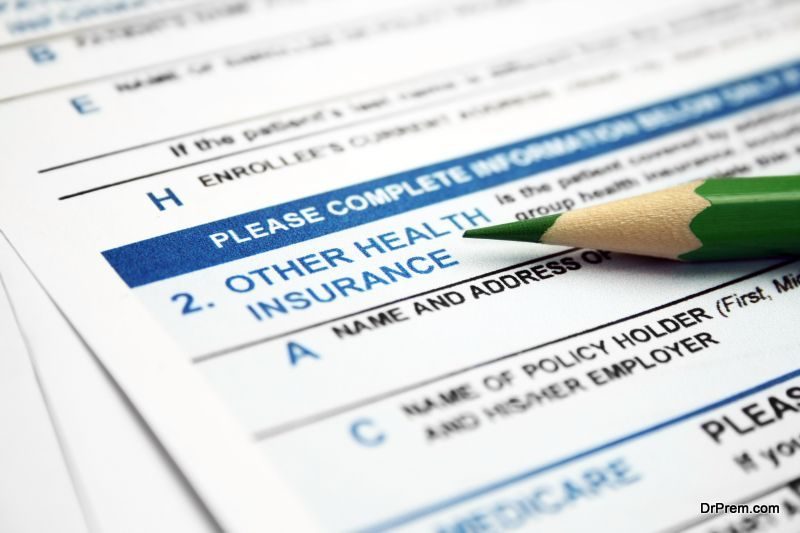Being diagnosed with cancer is a life altering event, regardless of the severity or stage of the disease. Sadly, more than 1.7 million people were diagnosed with cancer in 2018. That means that no cancer patient should be in their fight alone. There are countless resources available and both medical and technological breakthroughs happening daily to help treat and cure different types of cancer while maintaining the patient’s quality of life. If you or someone you know has recently been diagnosed with cancer, here are 5 tips and resources that will prepare you for the long road ahead.
1. Support System
 Aside from the proper medicine, doctors, and treatment plan, a support system is one of the most important things any cancer patient can have. Your support system is what will get you through each day. They will be there to celebrate your victories and encourage you during your hardest battles. And not everyone’s support system looks the same. For some people, their family is their main source of support. And this is true for several reasons.
Aside from the proper medicine, doctors, and treatment plan, a support system is one of the most important things any cancer patient can have. Your support system is what will get you through each day. They will be there to celebrate your victories and encourage you during your hardest battles. And not everyone’s support system looks the same. For some people, their family is their main source of support. And this is true for several reasons.
Some cancer patients choose to keep their condition private. This means only sharing it with immediate family. If you live with your family, they’ll obviously be the ones to see you every day and walk through the experience with you. Friends who are like family are also a great source of comfort and support.
Family and friends can support you in a variety of ways from visiting, offering to drive you to doctor appointments or chemotherapy, cooking for you, or simply checking in from time to time. People’s well-wishes most always come from a positive place but they can get overwhelming at times.
Be honest about how you’re feeling and communicate with friends and family. If you’re not up to a visit, politely decline. If their constant questions about how you’re feeling become a nuisance, express your concerns to them.
But friends and family aren’t the only source of support available for cancer patients. If your cancer requires chemotherapy, radiation, or any other type of medical treatment, you’ll soon become extremely friendly with the office staff. After all, you’re seeing these people regularly and they’re watching you progress and advance through the treatment process.
It’s not uncommon for staff to become emotionally invested in your treatment, successes, and setbacks. You can lean on these caregivers during your appointments and may even develop long-lasting relationships. Your doctors will also offer other support resources including hotlines, support groups, and brochures.
2. Reliable Doctor
While your doctors and nurses are a source of emotional support, they also need to be qualified to treat your condition. The type of cancer you have will likely determine the doctor you see. Once you’ve been diagnosed, your primary doctor or internist may refer you to a specific oncologist. You may also ask for referrals from friends or other people you know struggling with the same type of cancer.
Online reviews can offer some insight into a doctor’s reputation, bedside manner, and success rates. Don’t be afraid to ask for a second opinion or visit several doctors before choosing one that you’re comfortable with. Depending on the type of cancer, you may prefer a male or female doctor.
Consider the location of their office as well as what hospital and treatment facilities they’re associated with. This will become a factor when commuting to and from future doctor’s appointments. Cancer treatment can last from weeks to years, so choosing the right doctor shouldn’t be a rushed decision.
3. Realistic Outlook
 Hearing the word “cancer” is shocking and terrifying. Some people view cancer as a death sentence. While over 600,000 of the 1.7 million diagnosed cases of cancer do end in death, that doesn’t mean your prognosis has to be dim. A positive mind frame is half the battle when it comes to battling any type of illness.
Hearing the word “cancer” is shocking and terrifying. Some people view cancer as a death sentence. While over 600,000 of the 1.7 million diagnosed cases of cancer do end in death, that doesn’t mean your prognosis has to be dim. A positive mind frame is half the battle when it comes to battling any type of illness.
There are different stages of cancer, with some requiring less intensive treatment and others requiring surgery and resulting in a relapse. No two cancer journeys are identical. Even if you and someone you know are diagnosed with the same type of cancer and the same stage, it doesn’t mean that your treatment will look the same. They may react differently to the medication than you do.
Their cancer may have spread to other organs or areas of their body while you’re remained localized. Try not to compare yourself to anyone else. Your cancer journey is yours and yours alone. But you also need a realistic outlook on the road ahead. It won’t be easy. It’ll be filled with ups and downs. Good days and bad days. Keep a positive mindframe while also tackling the situation with the level of seriousness it deserves.
4. Knowledge about Your Treatment Plan
Knowledge is power. You should remain well-informed about your condition, treatment plan, and overall outlook for your condition. Being in denial about your cancer isn’t an option. Although the reality may be difficult to face, it’s necessary for you to tackle your illness head on and take the necessary steps toward getting better.
Stay in constant communication with your doctors, nurses, and surgeons. If they’re using a new or experimental medicine during your chemo treatment, ask questions and research the medication yourself.
Sadly, most people have adverse reactions to chemotherapy treatment including extreme fatigue, vomiting, weight loss, and hair loss, just to name a few. But knowing why these things are happening to you can help you feel more in control of your condition and less at the mercy of the illness.
5. Organized Paperwork
 While a positive mindframe is key; you also need to be rational. This means making sure that all of the necessary paperwork is in order for your family if and when they need it. Insurance policies, your last will and a testament, burial wishes, and any other important documents should be organized and kept together for your family and next of kin.
While a positive mindframe is key; you also need to be rational. This means making sure that all of the necessary paperwork is in order for your family if and when they need it. Insurance policies, your last will and a testament, burial wishes, and any other important documents should be organized and kept together for your family and next of kin.
If you don’t have all of these documents or arrangements made, a will attorney can help. Of course, you don’t want to think about a time when you’re no longer here, but for many cancer patients this is something that crosses their mind. And being prepared for the worst can actually help you to relax and focus on your health.
When you know that plans are in place in case you need them, it relieves quite a bit of stress. Not to mention, the last thing you want is for your family or loved ones to be fighting over belongings, money, or your wishes after you’re gone. Instead, detail it all for them. Your wishes should be followed and carried out if that time comes.
Conclusion
No one can describe what it’s like to deal with cancer or to handle the news of a diagnosis. You need to discover your own inner strength, support system, and team of amazing doctors. But you don’t need to do it alone. Take control of your situation, ask for help, be honest with yourself and others, prepare for the future, and simply take one day at a time.
Article Submitted By Community Writer




